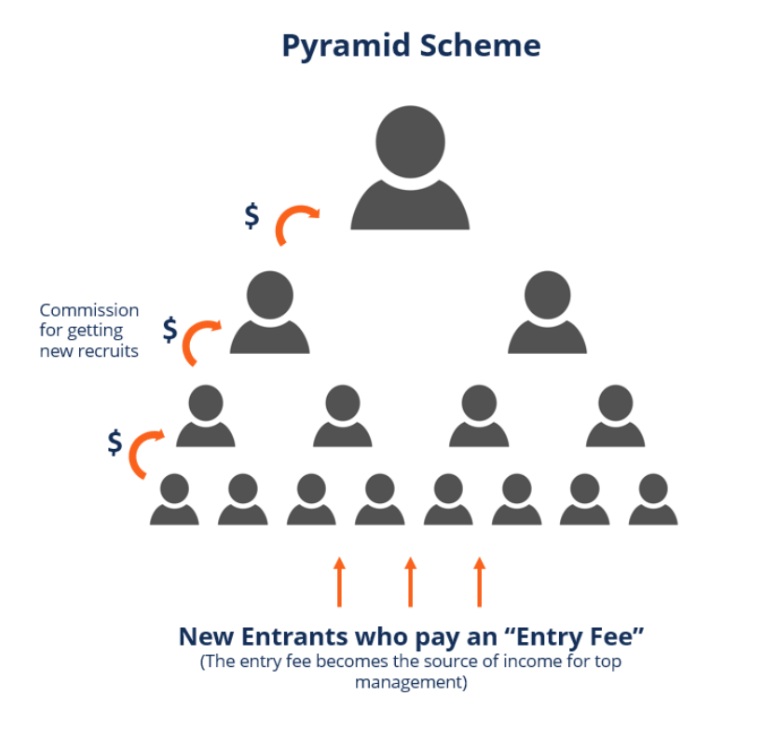In Egypt’s challenging economic landscape, repeated devaluations of the Egyptian Pound have amplified the cost of living crisis, fueling an estimated 30 percent rise in those living below the poverty line compared to 2019.
Families like Yousef’s* are turning to alternatives to sustain their finances.
In June 2023, Egypt experienced record-high inflation at 41 percent, demolishing the real value of Egyptians’ wages, and hitting those who live under or near the poverty line hard. Yousef’s family, once considered middle class, has had to make repeated sacrifices to stay afloat. Yousef, 19, now lives alone with his brother Ahmed, 18, while their father works multiple jobs across Cairo to earn money.
“The economic crisis has pushed us down and down by eroding our savings, and it has made my brother more desperate to escape the unfulfilling cycle of employment and find financial security,” Yousef said.
Ahmed has become invested in alternative income streams which could be more lucrative than traditional jobs salaries that leave employees underpaid and overworked. So, last year, he joined a multi-level marketing (MLM) company called Kings Academy.
The MLM is simple. First, new joiners must pay upfront for an education course at Kings, ranging from EGP 3,000 to EGP 15,000 (USD 62 to USD 309). Yousef explained that this fee was presented to Ahmed as an investment in his personal business.
After paying the fee, joiners learn tactics to sell courses to gain commission, partially by selling courses, but mainly by recruiting new joiners to the MLM.
After enrolling two new recruits, each of them must recruit two more people. Then, each newer recruit must do the same to keep the pyramid ‘even’, meaning the pyramid expands exponentially, as shown below.
These recruits become a “downline”, part of one’s pyramid. Alongside those ones personally recruits, there is a chance to earn commission on any new recruits the downline obtains.
Yousef believes the MLM is simply a pyramid scheme scam.
“It’s taken over Ahmed’s life, he now prioritizes the scam over his university courses. He told me he’s only continuing university to meet my parents’ expectations. It’s become his main purpose.”

The evolving nature of Pyramid Schemes in Egypt
Financial fraud and scams are familiar to most Egyptians, being one of the most common crimes. From Qnet, another infamous MLM, to HoggPool, a fraudulent cryptocurrency scheme with as many as 800,000 victims, many Egyptians know a friend or relative who lost money to different schemes.
However, the economic crisis and ubiquitous financial insecurity have triggered a rise in scams and fraud, as well as theft, as Egyptians desperately look for alternative income streams to sustain themselves.
Pyramid schemes globally are infamous for targeting those who are vulnerable, whether financially or emotionally. For example, many schemes in the US are aimed at stay-at-home mothers who want to work but require flexibility.
Kings Academy, on the other hand, targets university students without access to the safety net of generational wealth, who perceive their salary prospects in traditional employment as dismal.
Yousef shared how most recruits come from a background of “financial insecurity.” As is common in pyramid schemes, they ask new joiners to target their friends and family, those who place the most trust in them.
“My brother invited me to hang out with his friends. I assumed this was to catch up and have fun. They showed me a video of Kings’ CEO, Amr Attia, discussing how he’s just a simple guy who wants to help Egypt’s youth work their way up in the world. Then they tried to tell me the sign-up cost was nothing, even though it’s more expensive than most peoples’ monthly salaries.”
“I know how my brother talks, and that wasn’t it. It felt like my brother was fed certain phrases to use on me.”
Legal MLM or Illegal Pyramid Scheme?
Kings Academy labels itself as an MLM, although some, such as Yousef, accuse it of being a pyramid scheme.
Although MLMs and pyramid schemes both use multi-level marketing, they have a few distinct features.
Importantly, whilst MLMs are legal in Egypt, and subject to privacy requirements, pyramid schemes would be illegal under Article 336 of the Egyptian Penal Code, which prohibits false financial projects made with the intent to deceive a victim, particularly with the promise of “fictitious profit”.
A defining distinction is the product being sold. MLMs sell a product that is legitimate and has a genuine use, and the bulk of recruits’ commission will come from selling the product to customers, not attracting new recruits to the MLM.
On the other hand, a pyramid scheme sells a meaningless product, and commission is mostly earned from attracting new recruits to perpetuate the scheme, making it a scam. The business itself is the direct marketing aspect, with nothing in particular being marketed, and no value added to the economy.
Indeed, Ahmed shared with Yousef that during the initial course, he took at Kings, teachers mostly discussed the MLM scheme, only allocating a small portion of the course to vague and general business advice.
“It is basic advice that no one would really argue with, such as the fact that you need to be a risk taker,” Yousef said.
The United States Federal Trade Commission (FTC) notes that recruits of pyramid schemes are often required to buy products to enter the schemes, as was the case with Ahmed and Kings Academy. Pyramid schemes may also require you to buy the product at regular intervals if you’re marketing a physical good, regardless of the level of stock one has sold.
Recruits of pyramid schemes will emphasize the potential lifestyle that the scheme could help one achieve rather than the product being sold. Ahmed conveyed to Yousef how it is only through alternative means like the scheme that he would be able to obtain wealth, live a luxury lifestyle, and own a large villa, with little mention of the content of the course itself.
Egypt’s economic realities have meant that it is difficult for wealth to be generated through traditional means of relying on the Egyptian Pound. Even those who had previously succeeded in amassing savings have seen them eroded. Wealth is often inherited or generated through nepotist connections to different industries. In this economic landscape, those who lack the correct parentage turn elsewhere for hope.
Yousef notes that his brother was well-meaning, and wholeheartedly believed he was helping other recruits escape a life of “conformity and poverty” with a chance to earn commission.
Videos from Kings Academy’s Instagram account showcase interviewees discussing how they enjoy the fact that at Kings, unlike in other companies, you uplift yourself as well as others simultaneously.
However, according to the Corporate Finance Institute, the pyramid scheme model is unsustainable, and it generates revenue not by uplifting new recruits with the opportunity to expand their pyramid, but by funneling their profits to those at the top of the pyramid.
Since it is a prerequisite that one’s pyramid grows evenly, each level of the pyramid must expand exponentially. If one’s pyramid required two recruits at each level, as is the case in Kings Academy, by the 14th level, one would require over 32,000 recruits.
If a new student was recruited at the 14th level of the pyramid, they would struggle to find more individuals to join the scheme who have the financial capability, physical, and mental capability, as well as willingness to join the scheme. According to a theoretical probability model developed by statistician Joseph L. Gastwirth, less than one percent of participants can expect to recruit more than six other participants.
This business model suggests only the first couple levels of recruits in a scheme have a shot at success. Those recruited thereafter may struggle to expand their individual pyramids enough to gain a meaningful profit. As investigative journalist Jane Marie notes, this suggests late joiners are merely being exploited to further the scheme by those at the upper echelons.
Author and activist Emily Paulson writes of her experience in a scheme, “Back when I joined, my intentions were good. However, the impact didn’t match those intentions… I was making money because so many people were losing money.”

Is There a Meaningful Distinction between Pyramid Schemes and MLMs?
Many of the characteristics used to differentiate pyramid schemes from MLMs can be vague. For example, at what point does a product become meaningful? Both MLMs and pyramid schemes have recruits earn commissions from sales as well as recruiting others.
The FTC recommends a “70 percent rule”, where to be legal an MLM must sell at least 70 percent of all its goods to those who are strictly customers, not prospective recruits.
However, in her interview with Vox’s Sean Illing, Marie posits that there is no meaningful difference between MLMs and pyramid schemes as the latter can look extremely similar to MLMs. Some pyramid schemes sell legitimate products, and some MLMs sell misleading or deceptive products with inflated prices, as was true of Qnet and is arguably true of Kings Academy.
Firms, such as Kings Academy, exploit these marginal differences to make their operations appear more legitimate. They label themselves as legitimate MLMs, and may even train their recruits to have prepared answers to inquiries from customers.
When confronted by Yousef on the practices of Kings Academy, Ahmed responded with the common defenses used by pyramid schemes claiming they are MLMs. He argued that Kings Academy sells a legitimate product, unlike pyramid schemes, and that it was possible to attract a high number of recruits due to Egypt’s large population.
Regardless of whether companies such as Kings Academy are pyramid schemes or not, both pyramid schemes and MLMs are poor financial decisions. According to two studies analyzing data across MLMs in the US, 99 percent of participants in MLMs lose money or do not turn a profit, as many participants end up encountering hidden costs.
Those who attempt to recruit to an MLM or pyramid scheme may be secretive about their true profits to make the scheme more appealing. Ahmed has avoided sharing his revenue with Yousef, although he has shared that to make EGP 5,000 (USD 103) a day, 18 people would need to sign up from your extended pyramid.
The Psychological Impact of Joining an MLM or Pyramid Scheme
Outside of financial repercussions, Yousef and Paulson share similar beliefs about how pyramid schemes and MLMs can debilitate relationships and colonize one’s sense of self.
Ahmed constantly nagged Yousef to sign up and recruit his friends, following Kings’ CEO Amr Attia’s recommendation to follow up with customers multiple times. Egyptian Streets contacted Attia for comment but received no response.
“My brother wanted me to introduce him to all my friends, but then I found out it was to recruit them to Kings Academy. I can’t trust him anymore, and it’s become a constant source of arguments every time he brings it up.”
In her book, Paulson expressed a similar sentiment, “I pushed away friends and family by consistently pestering them about my “business” and trying to recruit them. I badgered people with my constant messages and posts. I began to see friends and acquaintances as dollar signs instead of human beings.”
Yousef also mentioned that the community at Kings Academy is strong. Ahmed has gained a tight-knit group of friends who encourage each other, and their presence has resulted in his purpose and sense of identity being heavily intertwined with the scheme.
“We’ve all tried to show him how this is a waste of his time and money. Yet, he only becomes more stubborn. The MLM scheme has become central to his aspirations, and he takes deep offense when you tell him it’s a scam because that would suggest he’s trying to rob you as well or that he’s fallen for it.”
Stopping Scams at their Root
Petitions in countries such as the United States and the United Kingdom have attempted to ban MLMs entirely, with little success. Although better than inaction, if a ban was in place in Egypt, poor or uneven enforcement may limit its efficacy.
Education targeted at vulnerable groups, in particular the elderly, could be instrumental to reducing the susceptibility of Egyptians to pyramid schemes and informing them of the risks of joining an MLM.
However, to fix the problem more fundamentally, social mobility must become a priority in Egypt’s economic policy.
MLMs in the United States are successful at targeting mothers due to their uncommonly flexible, often remote working hours. Similarly, MLMs in Egypt like Kings Academy choose their targets and try to attract unassuming elderly and internet-savvy teenagers who are desperate to believe they can take charge of securing their future regardless of their family backgrounds.
Successful scams do not merely rely on deception, but also manipulate emotionally difficult truths, such as the difficulty of succeeding in Egypt’s economy, to their own ends.
Those in vulnerable positions must be provided with safety nets, as well as opportunities to strive in their own right. If more Egyptians felt that obtaining a better life was possible and that there are resources available, they would be less psychologically susceptible to scammers.
*names in this article, and minor details, have been changed for anonymity
**The author of this article reached out to Kings Academy CEO Amr Attia for any comments, but received no response. Moreover, other participants of the MLM Scheme were also contacted, but responded that they were unable to discuss any details with the press.







Comments (0)